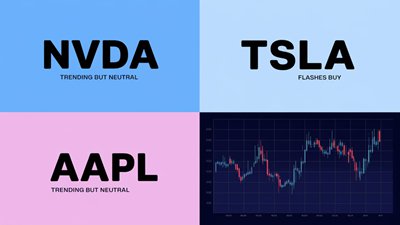Merging Giants: What Humana’s (NYSE: HUM) and Cigna’s (NYSE: CI) Union Means for Investors
The healthcare industry is poised for a significant transformation with the potential merger of two of its giants, Cigna and Humana. This prospective union, which has been making headlines, is expected to create a new powerhouse in the health insurance sector. For investors, the implications of such a merger are multifaceted, involving considerations of market positioning, financial health, regulatory hurdles, and competitive dynamics.
Stock Performance Overview
Humana’s stock has shown a commendable trajectory over the last decade, with an impressive growth of +364%, significantly outpacing broader indexes. This performance underscores the company’s robust business model and its ability to adapt to the evolving healthcare sector (Yahoo Finance). In contrast, Cigna’s stock has also performed admirably with a +204% increase, topping the benchmark’s +160%, indicating a strong market position and investor confidence (Yahoo Finance).
Over the last three years, Cigna’s stock has risen by +26%, while Humana has witnessed a +20% increase. This narrower margin suggests a more competitive environment in recent times, with both companies striving for market leadership (Yahoo Finance).
Recent Market Reaction to Merger News
The news of a potential merger between Humana and Cigna has stirred the market, causing Cigna’s stock to drop by -8% and Humana’s by -5% on the day of the announcement. Such a reaction is typical when merger talks are publicized, as investors weigh the benefits and risks of the potential deal (Business Insider).
Valuation Metrics
As of the latest available data, Humana trades at a higher price-to-earnings (P/E) ratio of 18.2 times compared to Cigna’s 11.6 times. This suggests that the market may be pricing Humana at a premium due to its growth prospects or perceived stability (Reuters). However, a lower P/E for Cigna might indicate an undervaluation or skepticism about its future growth.
Competitive Landscape and Industry Consolidation
The potential merger between Humana and Cigna would create a new powerhouse in an already consolidated industry, posing a challenge to competitors like CVS Health and UnitedHealth Group. Such a move could lead to increased market share and bargaining power but may also attract regulatory scrutiny due to antitrust concerns (Reuters).
Strategic Rationale Behind the Merger
Cigna and Humana each bring their own strengths to the table. Cigna has a robust presence in the commercial insurance market, while Humana boasts a substantial Medicare Advantage portfolio. The combination of these two entities is expected to leverage their complementary assets, thereby enhancing their competitive edge in a highly consolidated industry (Advisory Board).
Market Impact
From an investor’s perspective, the union of Cigna and Humana is likely to yield a behemoth with increased market share and bargaining power. The scale of operations could lead to cost efficiencies and an improved ability to negotiate with healthcare providers. Moreover, the combined entity could potentially challenge the dominance of UnitedHealth Group, especially in the lucrative Medicare Advantage space (Reuters).
Financial Outlook
The financial contours of the deal, reportedly a mix of cash and stock, have yet to be fully disclosed. However, the performance of both companies’ stocks in the wake of the merger news has been telling. Cigna’s shares dipped by 4.4%, while Humana’s remained relatively stable. This reaction may reflect investor concerns about the price of the acquisition and the financial commitments required to see it through (Reuters).
Antitrust Considerations
A major factor that investors need to monitor closely is the potential antitrust challenge this merger could face. Regulatory bodies have previously shown skepticism towards consolidation in the healthcare insurance industry, and this deal is unlikely to be an exception. The success of the merger will hinge on the ability of the two companies to convince regulators that the deal would not stifle competition or harm consumers (Fierce Healthcare).
Investor Sentiment and Future Prospects
Analyzing investor sentiment, it’s clear that the market is cautiously optimistic but wary of the regulatory and execution risks associated with the merger. The potential for cost savings and market expansion is attractive, but the shadow of antitrust challenges looms large. Investors will need to weigh the short-term volatility against the long-term strategic benefits of the merger.
The valuation disparity between the two companies also presents a point of interest. Humana’s higher price-to-earnings ratio suggests a stronger market confidence in its growth prospects compared to Cigna. This valuation gap might influence the terms of the deal and, consequently, the post-merger integration process and value creation for shareholders (Reuters).
Conclusion
While the market has reacted negatively to the merger news in the short term, the long-term implications of such a deal could be transformative for both companies. The combined entity would likely benefit from economies of scale, a broader customer base, and enhanced competitive positioning.
However, it is crucial to monitor the developments closely, as the success of the merger will hinge on regulatory approvals and the ability to integrate the operations of both companies effectively. Investors should also consider the broader economic environment and sector-specific challenges when making investment decisions.
In conclusion, the proposed merger between Cigna and Humana represents a significant opportunity for both companies to bolster their market position and achieve economies of scale. For investors, the union promises potential for growth and profitability, albeit tempered by execution risk and regulatory hurdles. The coming months will be critical as more details emerge and the companies navigate the complex landscape of antitrust review. Investors should maintain a vigilant watch over the proceedings, as the outcome of this merger will have far-reaching implications for the healthcare insurance industry and their portfolios.
To become a better investor with our AI Assistant @ kavout.com/investgpt


